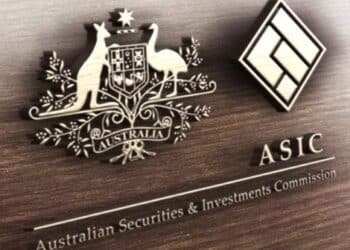The super fund, which reported a 10 per cent return for its Super Savings Balanced option in FY 2022–23, said it owes its strong performance and expected ongoing growth to its approach to valuations.
Speaking to InvestorDaily, Andrew Fisher, head of investment strategy at ART, acknowledged the current tough climate and heightened recession talk but assured that the fund is well positioned for a potential economic downturn.
“The way we’re positioning portfolios at the moment, the way we’re seeing things is that the uncertainty with respect to the inflationary environment is quite challenging,” Mr Fisher said.
ART’s Balanced option is mostly invested in Australian (24 per cent) and international equities (30 per cent), followed by fixed income (18.5 per cent), infrastructure (10.5 per cent), and property (8.5 per cent).
Looking forward, Mr Fisher assessed that for the economy, there are two “quite plausible scenarios”, and added that with such a diversified set of portfolios, ART is prepared for both.
“Inflation could trend back down to its target band, potentially even a hard landing, which would see the deflationary type hedges performing quite well on your portfolio — traditional things like bonds, for example,” Mr Fisher said.
The alternative, he assessed, is a regime of structurally high inflation.
“When you’re faced with a challenging environment like that, I think the best thing you can do is diversify. At the top-down macro level, we have the traditional diversifying levers in the portfolio like bonds that will work within asset classes,” Mr Fisher said.
“We’re looking particularly in the alternative space to find inflation hedging exposures, so that is more core, like exposures in infrastructure, but actually more alternative exposures. Property is where we’re finding the best inflation hedging characteristics at the moment.”
ART’s chief investment officer, Ian Patrick, expressed a similar sentiment. He said that despite the challenges — inflationary pressures and rising interest rates — the fund’s proactive and robust approach to valuations will act as a springboard for future success.
“Our prompt action during the previous financial year to adjust our private equity valuations to reflect market conditions set us up for success this year and I similarly believe that our early action on property this financial year will do the same,” Mr Patrick said.
He elaborated that despite the challenges in the office sector, the diversification in the property portfolio into alternative property sectors such as industrial property, US residential debt strategies, and aged care has helped balance outcomes.
“It is important to always remember that super is a long-term investment, and Australian Retirement Trust’s Super Savings Balanced option has delivered a return of 8.4 per cent over 10 years until 30 June 2023. Our investment team’s expertise and experience enables us to deliver solid and competitive investment returns to our members over the long-term,” Mr Patrick added.
Moreover, the CIO encouraged Australians to “take note of their superannuation strategy” and check their funds’ long-term investment performance.
He also added that amid ongoing market volatility, financial advice can set Australians up for better retirement outcomes.
“At Australian Retirement Trust, we genuinely believe in the power of financial advice and the impact it can have on people’s lives, so we encourage people to speak to a financial adviser to set themselves up for better retirement outcomes.”
ART currently boasts 2.2 million members and $240 billion of their retirement savings.
The fund recorded a return of -0.96 per cent for its Super Savings Balanced option for the 2021–22 financial year.
At the time, Mr Patrick said that despite world events such as the war in Ukraine causing substantial market volatility in the second half of the financial year, rising interest rates and inflationary pressures, “this is still a good outcome”.







